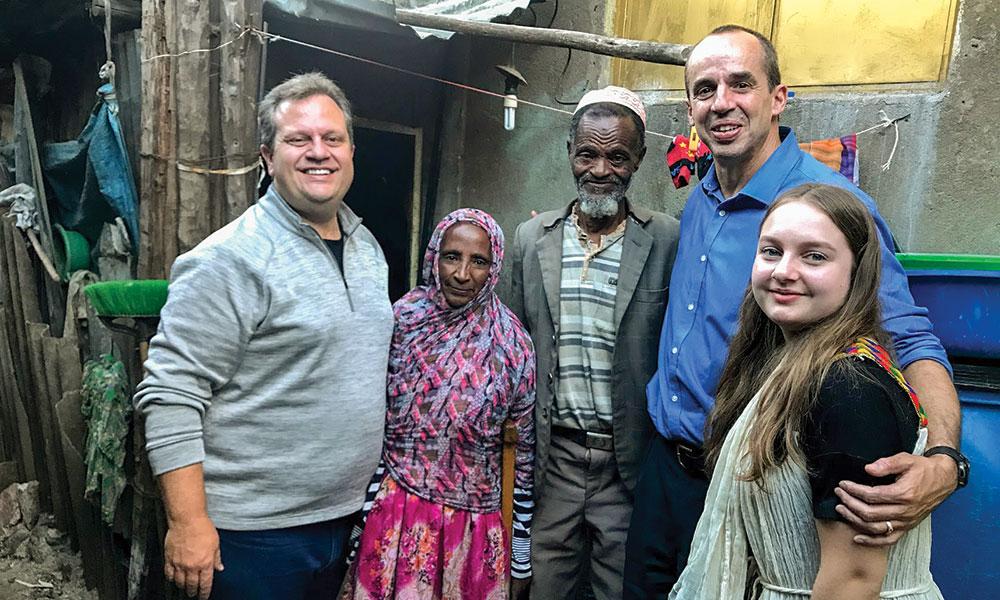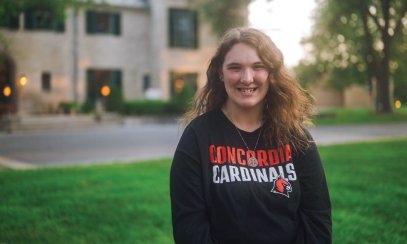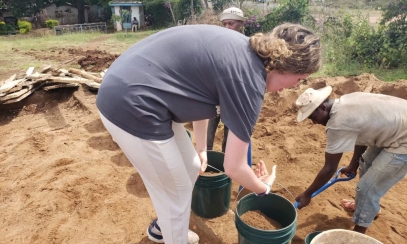
From Ann Arbor to Africa: How the Weingartz Foundation is Tackling Global Poverty
It’s easy to miss the headquarters of International Samaritan as you come off the highway and head south toward downtown Ann Arbor. The modest building on North Main Street would be nondescript in the Kerrytown neighborhood if not for a row of flags along the front porch railing — one for each country the nonprofit has a presence in, bringing hope and life-saving resources to “garbage dump communities” around the world.
It’s easy to miss the headquarters of International Samaritan as you come off the highway and head south toward downtown Ann Arbor. The modest building on North Main Street would be nondescript in the Kerrytown neighborhood if not for a row of flags along the front porch railing — one for each country the nonprofit has a presence in, bringing hope and life-saving resources to “garbage dump communities” around the world.
Thanks to a $2.2 million donation by the Michigan-based Weingartz Family Foundation this past spring, International Samaritan has added two new flags to the lineup.
The gift enables local leaders on the ground in Kenya and Uganda to serve the poorest of the poor in Nairobi, Kenya, and Kampala, Uganda, including offering 200 scholarships to students who otherwise would have extremely limited, if any, pathways out of a life spent scavenging in horrific, unsanitary conditions. Not only covering tuition, uniforms, transportation and books, the scholarships also provide food to students’ families, since attending school means a child isn’t earning income by working in the dump.
“By forming scholars and caring for their families, we invest not only in a person, a family or a community, we invest in our humanity,” said Dan Weingartz, who chairs International Samaritan’s Board of Trustees, at the flag raising ceremony in May.
“This gift isn’t just about helping young people attend school, instead of facing a lifetime of working in the dumps,” said International Samaritan President Mike Tensbusch. “It’s about giving them experiences, networks and spiritual and leadership development so that they emerge as leaders able to change the future of their community and nation.”
International Samaritan supports initiatives ranging from ensuring clean water supply to building homes and schools for those who might spend their entire lives subsisting on what they can glean and resell from massive trash sites. The nonprofit has a presence at dumps in six different countries and deeply roots its work in Catholic social teaching.
"In these times, when opinions can be shared so carelessly and widely via social media, we find it refreshing to lean into a body of work that's two centuries old and incorporates intellectual giants like Aristotle and St. Paul,” Tenbusch said. “While people of the left may embrace one side of Catholic social teaching and those on the right may prefer other aspects of it, we are at our best as followers of Christ when we live out all of it."
At the Ocotillo dump in El Pedro Sula, Honduras — a site one reporter called “a vision from hell” — the organization built and funds a medical center that treats more than 9,000 patients a year, many of them coming in for as infections and injuries that can easily turn fatal under such conditions. Collapsing mountains of trash is one of the many ways people can be injured at a dump. In 2017, a landslide in the Addis Ababa, Ethiopia, dump killed 117 people, including one of International Samaritan’s scholarship students.
In Guatemala, International Samaritan maintains a presence at the largest dump in Central America, supporting schools and scholarships, arranging medical mission trips, building homes and more. The group’s new presence in Kenya will serve at one of the largest dumps in the world, with more than one million people living in surrounding slums.
Taking its name from Jesus’ parable of the good Samaritan, International Samaritan unabashedly describes itself as “Christ-centered,” with a mission rooted in principles of Catholic social teaching. It was founded in 1994 by Father Don Vettase, SJ, and maintains a Jesuit connection with Father Jim Gartland, SJ (pastor of St. Mary Student Parish at the University of Michigan) serving on the board.
“Our family’s foundation is a platform to help others and, by extension, share the Good News. In particular, the Lord has put care for the poor as a conviction in our hearts,” said Weingartz. “That has been clear to us for most of our lives — that God’s call for the preferential option for the poor is part of our family mission.”



